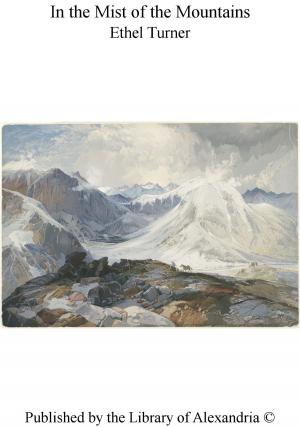The Gipsy: A Tale (Complete)
Nonfiction, Religion & Spirituality, New Age, History, Fiction & Literature| Author: | George Payne Rainsford James | ISBN: | 9781465597564 |
| Publisher: | Library of Alexandria | Publication: | March 8, 2015 |
| Imprint: | Language: | English |
| Author: | George Payne Rainsford James |
| ISBN: | 9781465597564 |
| Publisher: | Library of Alexandria |
| Publication: | March 8, 2015 |
| Imprint: | |
| Language: | English |
The spot through which the travellers were riding, and which was a wide piece of forest ground, one might have supposed, from the nature of the scenery, to be as common to all lands as possible; but no such thing! and any one who gazed upon it required not to ask themselves in what part of the world they were. The road, which, though sandy, was smooth, neat, and well tended, came down the slope of a long hill, exposing its course to the eye for near a mile. There was a gentle rise on each side, covered with wood; but this rise, and its forest burden, did not advance within a hundred yards of the road on either hand, leaving between--except where it was interrupted by some old sand-pits--a space of open ground covered with short green turf, with here and there an ancient oak standing forward before the other trees, and spreading its branches to the way-side. To the right was a little rivulet gurgling along the deep bed it had worn for itself among the short grass, in its way towards a considerable river that flowed through the valley at about two miles' distance; and, on the left, the eye might range far amid the tall, separate trees--now, perhaps, lighting upon a stag at gaze, or a fallow deer tripping away over the dewy ground as light and gracefully as a lady in a ballroom--till sight became lost in the green shade and the dim wilderness of leaves and branches. Amid the scattered oaks in advance of the wood, and nestled into the dry nooks of the sand-pits, appeared about half a dozen dirty brown shreds of canvass, none of which seemed larger than a dinner napkin, yet which--spread over hoops, cross sticks, and other contrivances--served as habitations to six or seven families of that wild and dingy race, whose existence and history is a phenomenon, not among the least strange of all the wonderful things that we pass by daily without investigation or inquiry. At the mouths of one or two of these little dwelling-places might be seen some gipsy women with their peculiar straw bonnets, red cloaks, and silk handkerchiefs; some withered, shrunk, and witch-like, bore evident the traces of long years of wandering exposure and vicissitude; while others, with the warm rose of health and youth glowing through the golden brown of their skins, and their dark gem-like eyes flashing undimmed by sorrow or infirmity, gave the beau idéal of a beautiful nation long passed away from thrones and dignities, and left but as the fragments of a wreck dashed to atoms by the waves of the past.
The spot through which the travellers were riding, and which was a wide piece of forest ground, one might have supposed, from the nature of the scenery, to be as common to all lands as possible; but no such thing! and any one who gazed upon it required not to ask themselves in what part of the world they were. The road, which, though sandy, was smooth, neat, and well tended, came down the slope of a long hill, exposing its course to the eye for near a mile. There was a gentle rise on each side, covered with wood; but this rise, and its forest burden, did not advance within a hundred yards of the road on either hand, leaving between--except where it was interrupted by some old sand-pits--a space of open ground covered with short green turf, with here and there an ancient oak standing forward before the other trees, and spreading its branches to the way-side. To the right was a little rivulet gurgling along the deep bed it had worn for itself among the short grass, in its way towards a considerable river that flowed through the valley at about two miles' distance; and, on the left, the eye might range far amid the tall, separate trees--now, perhaps, lighting upon a stag at gaze, or a fallow deer tripping away over the dewy ground as light and gracefully as a lady in a ballroom--till sight became lost in the green shade and the dim wilderness of leaves and branches. Amid the scattered oaks in advance of the wood, and nestled into the dry nooks of the sand-pits, appeared about half a dozen dirty brown shreds of canvass, none of which seemed larger than a dinner napkin, yet which--spread over hoops, cross sticks, and other contrivances--served as habitations to six or seven families of that wild and dingy race, whose existence and history is a phenomenon, not among the least strange of all the wonderful things that we pass by daily without investigation or inquiry. At the mouths of one or two of these little dwelling-places might be seen some gipsy women with their peculiar straw bonnets, red cloaks, and silk handkerchiefs; some withered, shrunk, and witch-like, bore evident the traces of long years of wandering exposure and vicissitude; while others, with the warm rose of health and youth glowing through the golden brown of their skins, and their dark gem-like eyes flashing undimmed by sorrow or infirmity, gave the beau idéal of a beautiful nation long passed away from thrones and dignities, and left but as the fragments of a wreck dashed to atoms by the waves of the past.















